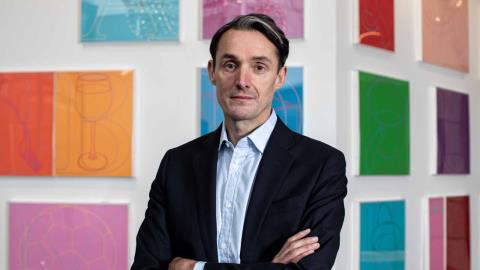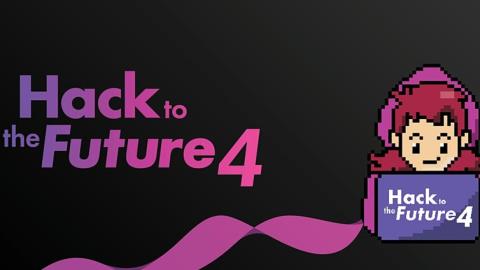Having witnessed a degree of decline in popularity over the last few months, the panel turned their focus to how they see the coming few years for NFTs.
Aliya Das Gupta, senior vice president at Sygnum Bank, moderated the session, and was joined by Ori Levi Ceo of NFTrades, CEO and founder of DMarket, Vlad Panchenko, and Julia Morrongiello, head of growth at Zero Hash.
When asked to speak to the power of NFT technology, Levi stated: “I think that once in a decade, you come across technology that you know is going to change the world as we know it. I think that non fungible tokens right now are mostly Bored Apes and NFT’s that are JPEGs, and that’s exciting. But the actual technology is going to be applied to a lot more things that are not yet there.”
“We are only at 1% of what is going to happen. Most of the value we will see will be when more of the virtual and metaverse world come to life,” argued Panchenko.
Morrongiello elaborated on what is currently holding NFTs back, stating: “We’re largely using them for collectables and digital art, which I personally don’t think have that much real value. I think the reason it hasn’t actually become more widespread is because there are many barriers to adoption.
“One is the whole UI and UX side of things, it is so difficult to own a NFT if you’re not a crypto native […] the other one is scalability and price. Many NFTs are built on Ethereum blockchain where there are massive gas fees […] Finally, the regulatory side of things is very uncertain. Most governments don’t actually know how to treat NFTs.”
The panellists posited that some future applications of NFTs will become natural to consumers to the point they won’t know they are even using an NFT, with Das Gupta summarising that “when the technology becomes invisible, I think that’s the point where you know it has truly won.”
While the panel discussed some of the use cases for NFTs, such as being linked to real-life items or ticketing, Panchenko countered this idea, as “tickets don’t need an NFT. I like it and I’ve used it, but you don’t need it […] The only place where I clearly see there will be double digits in gross, is when a digital item is directly connected from business to business activities.”
Mutually beneficial partnerships
Deutsche Bank and Google Cloud are now roughly 18 months into their partnership. To discuss the progress of their partnership, Bernd Leukert, member of the management board at Deutsche Bank, and Dr Daniel Holz VP EMEA North at Google Germany co-panelled the headline session: ‘Deutsche Bank and Google Cloud in conversation.’
Offering some background, Holz explained: “We were invited to talk the end of 2020 about how can we help Deutsche Bank achieve the targets of digitisation, to help bring the culture to the next level. We gladly accepted it because we think it’s a nice contrast where you not only have technology versus business, but also the culture of the bricks and mortar business coming together with a culture of Silicon Valley.”
When asked about the progress of the partnership, Holz commented that in 2021 they built the foundation, while in 2022, “it’s all about migrating and modernising the applications. We already have more than 30 solutions brought from on premise to the cloud. The aim for this year is going to be to reach 100 or more application running on a cloud native environment.”
Regarding the same topic, Leukert reported that one of the big achievements of the partnership is tied capacity: “being in control, for a bank, is the biggest asset you can have in these days. Unlimited capacity is helping us. While before the topic of capacity management was on our agenda, now it’s gone, at least to the order of magnitude we needed.”
Concerning some of the challenges faced by this partnership, particularly considering Deutsche Bank’s (originally) older system, Holz said they realised they needed to not “only train the IT personnel, but also make sure that they have lines of business and horizontal areas on board.”
“In the first aspect, training the IT staff to make them capable, so that they can solve and deal with this disparate infrastructure more effectively and apply talent skills. We have already right now more than 2500 employees of Deutsche Bank in training to become cloud experts.”
“Then we had to deal with the line of business,” Holz continued,. “if we want to integrate them and get them on the bandwagon. We created special formats that can create an open house format, where we have regularly lines of business, IT, and Google Cloud in joint teams sitting together, talking about business and how to better solve. Then later on this was translated into new solutions to technology.”
Leukert added: “We want to provide a platform we want to provide an ecosystem where every fintech is welcome to join us with the benefit of having a more comprehensive offer for our customers.”
Commenting on how the recent drop in valuation has affected the partnership, Leukert observed: “I would say the recent development has just shown that our customers require collaboration, they require partnership.”
Sustainable business models
Turning to sustainable growth models following the current downturn post pandemic, Jaidev Janardana, CEO of Zopa bank stated: “We were never believers in the growth at all costs model. When we applied for a banking license, we deliberately picked products where we felt we can actually make money while serving customer needs.”
He furthered: “As we have looked to expand, we have tried to find customer pain points, but solve them in a way where we are rewarded for them.”
Regarding her role as investment director of Softbank Investment Advisors, Alexia Yannopoulos said: “I look after our investments in fintech in the European Middle East Africa region. What we’re seeing within that is a lot of product advancements, a lot of guidelines coming from the regulator, that has really pushed the fintech sector ahead.”
Janardana commented on a potential IPO, having previously earmarked Q4 as an attractive period:
“As of today the markets are shot. That is not in our control. So we will wait for the right moment to do an IPO.”
“There is a plethora of new product launches that we want to do over the next over the next six to 12 months. That stays true to those principles of trying to help customers improve their finances in these difficult times while generating profits for the business.”
Commenting on some trends she is seeing in the market Yannopoulos argued: “Lots of companies are looking at growing through acquisitions, because there’s a scarcity of capital, or compared to what it was last year. Last year was of an abundance of capital. So I think it’s now going back to normal rather than saying it’s not there. It’s still there.”
Fintech helping Ukraine
As the war in Ukraine continues, one Money 20/20 panel brought together several Ukrainian fintechs to discuss some of the challenges they have faced since conflict broke out.
The panel included Maria Kolganova, executive director of the Independent Association of the Banks of Ukraine (NABU), Nataliia Slieptsova, CMO of Sportbank, Shevtsova Alyona, CEO of Owner IBox Bank, and Anna Tigipko, owner and CEO of izibank.
Tigipko opened by explaining that “the Ukrainian economy was pretty well developed before the war […] The war started, but we never stopped. The financial sector, neobanks especially, continue operating with no problem whatsoever. We did remarkably well considering the circumstance, and we continue to innovate, to develop new products and nothing stops.”
Kolganova argued that Covid-19 actually helped the banks to continue running due to the war because people were used to distance tools and apps like Diia, but argued that another factor was “the psychological aspect, because a lot of people go really crazy in the short term to withdraw all the money. But after that, people saw that banks were working. People saw that their digital operations are successful, that their cards work, that fintech solutions work, and everything works.”
Alyona told her company’s story, as they were forced to relocate to Poland and are in the process of setting up there: “We are the economic front, because while the economy works, the military stands for us back in Ukraine.”
Slieptsova explained that a large lesson learnt has been that “it doesn’t matter where our colleagues are, whether they are Kyiv or in the Netherlands or other countries, we do our best and that is why it continues to work perfectly. We have new clients, and our active client base is more than 400,000 right now.”
Regarding how they have handled the situation, with lots of their clients being spread out geographically, Kolganova claimed that, “this is a great example of when fintech helps. If you have moved to Europe and you have to pay rates when using a Ukrainian card connected to a Ukrainian bank account. Then you can use a fintech solution, for example Revolut, and that converts the money.”
Tigipko concluded, “we’re very grateful to the governments, the businesses, and to people helping our refugees everywhere in Europe. Just highlighting that a lot of people stayed in Ukraine, they continue working, supporting the economy and business. I know for sure nothing will stop us.”
,What’s next for NFTs? Non-fungible tokens (NFTs) continue to dominate headlines and event agendas as 2022 roars on, yet, panellists on day two of Money 20/20 Europe argued that it is a topic where the technology is not yet fully used or understood.,








